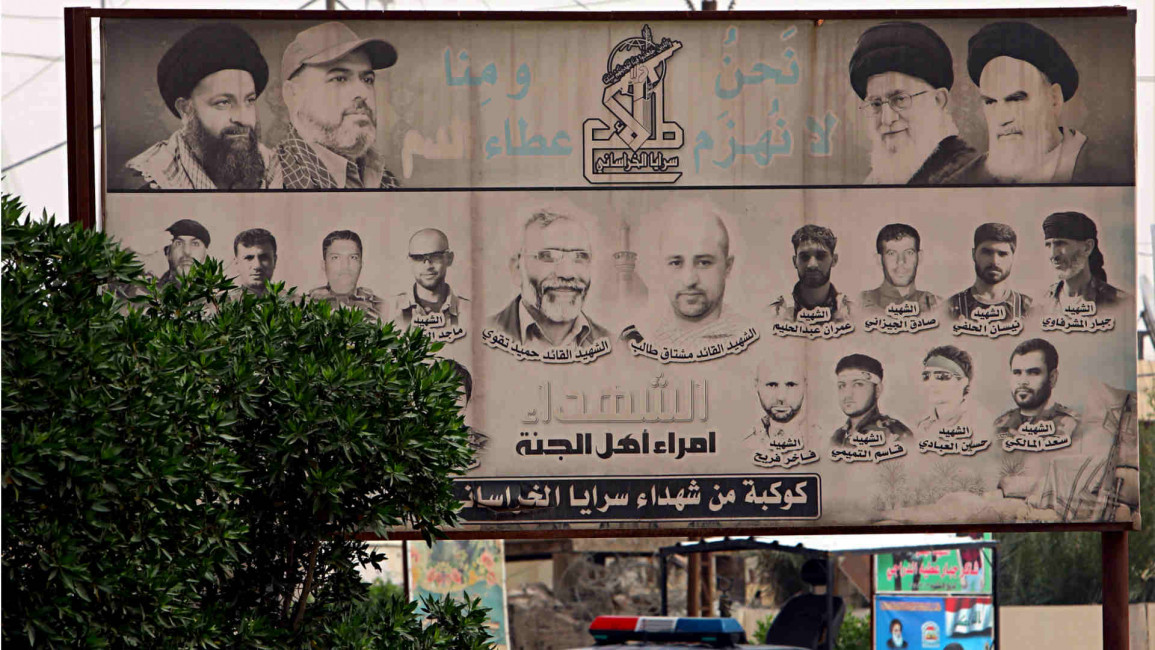Iraq grapples with Iranian influence ahead of elections
Iranian support and military advisers, along with pro-Iran Shia militias, helped Baghdad's Shia-led government beat back the Islamic State group. But with IS militants now largely defeated militarily, Iran's expanding influence has emerged as one of Iraq's most divisive issues ahead of the balloting.
That influence has sown fear among Iraq's disenchanted minority Sunnis, who bore the brunt of the war's destruction, and has also caused concern in Washington. Despite tensions between the United States and Iran, both remain key allies of Iraqi Prime Minister Haider al-Abadi's government.
US Defence Secretary Jim Mattis last month accused Iran of "mucking around" in Iraq's upcoming elections, telling reporters the US has what he called "worrisome evidence" that Iran is funnelling "not an insignificant amount of money" into Iraq to try to sway votes. Baghdad rejected the accusation.
Government spokesman Saad al-Hadithi stressed that the use of foreign money in domestic politics "is illegal and unconstitutional."
| Read more: Who will Kurds support in Iraq's upcoming elections? |
"The government is taking great efforts to hold free and fair elections and prevent the manipulation of election results," he said.
Both Iran and Iraq are Shia-majority counties and share deep economic and cultural ties – as well as a 1,500-kilometre (900-mile) border.
 |
|
| Iraqis carry paramilitary and national flags at a protest organised by the Iranian-backed Hizballah brigades, that was active in the fight against Islamic State militants, in Baghdad, Iraq [AP] |
The two countries fought a devastating war in the 1980s that left hundreds of thousands dead.
But Iranian influence in Iraq has steadily grown since the 2003 US-led invasion that toppled Iraqi dictator Saddam Hussein, marking the start of a prolonged period of sectarian division, extremist violence and political strife.
Under Saddam, Iraq's Shia majority were brutally persecuted and many of the Shia political elite spent years in exile in Iran. Since Saddam's ouster, Iraqi markets have been stocked with Iranian goods and millions of Iranian pilgrims descend on Iraq each year to visit holy shrines in the cities of Samarra, Baghdad, Najaf and Karbala.
When entire divisions of Iraq's military disintegrated following the fall of the city of Mosul to IS in the summer of 2014, Iranian influence soared.
Weeks before the US began a bombing campaign against IS, Iranian advisers and support for Iraqi Shia militias, which became known as Popular Mobilisation Units, helped halt IS' advance, which came dangerously close to Baghdad. From then on, the militias became instrumental in the battle against IS.
More than 500 members of the paramilitary forces or political figures associated with the pro-Iran militias are now running for parliament, and are expected to win many votes.
In addition, 374 would-be candidates have been barred from running in the election due to alleged links to Saddam Hussein's Baath party, al-Araby al-Jadeed reported on Tuesday.
 |
More than 500 members of the paramilitary forces or political figures associated with the pro-Iran militias are now running for parliament, and are expected to win many votes |  |
Iran is not the only one trying to influence the May vote, however. The US, who still more than 5,000 troops stationed in the country, is also keen to have a hand in who becomes the next Iraqi prime minister.
While the Shia militias racked up several early victories against IS, it was US-led coalition airstrikes that allowed Iraqi forces to retake urban areas. Iraq remains deeply dependent on US military aid, training and intelligence sharing.
While Abadi, who is seeking re-election with his recently formed Victory Alliance party, has said he is open to long-term American training programmes for Iraqi forces, some of his opponents have taken a much harder line, describing any US forces in Iraq as occupiers.
US troops in Iraq are still battling against remaining pockets of IS, most significantly along Iraq's volatile border with Syria, in western Anbar province and around the city of Kirkuk – areas that have seen an uptick in militant activity.
"I'm not going to speculate on anything that could or would happen," coalition spokesman Ryan Dillon said when asked if there is concern that a change in government could affect the US-led coalition's presence in Iraq.
"We are here at the invitation of the government of Iraq to support their operation to defeat Daesh, and we'll continue to do so as long as we are invited," he said, referring to IS by an Arabic acronym.



